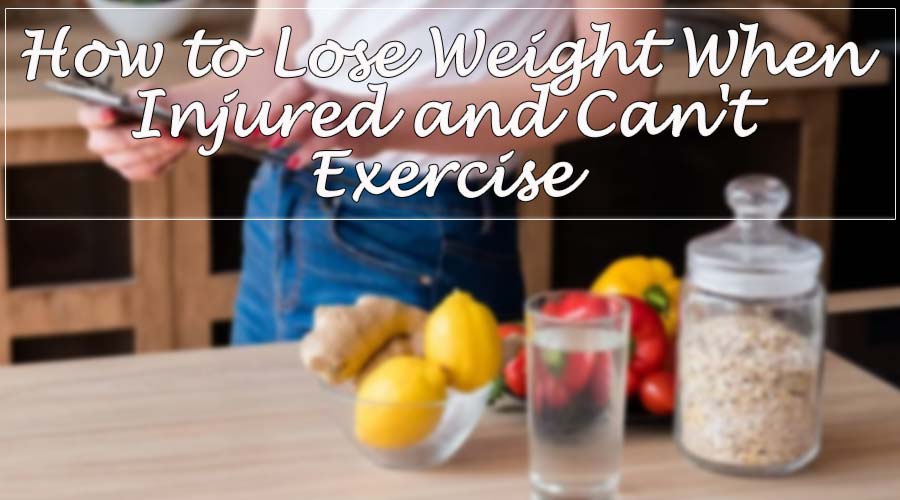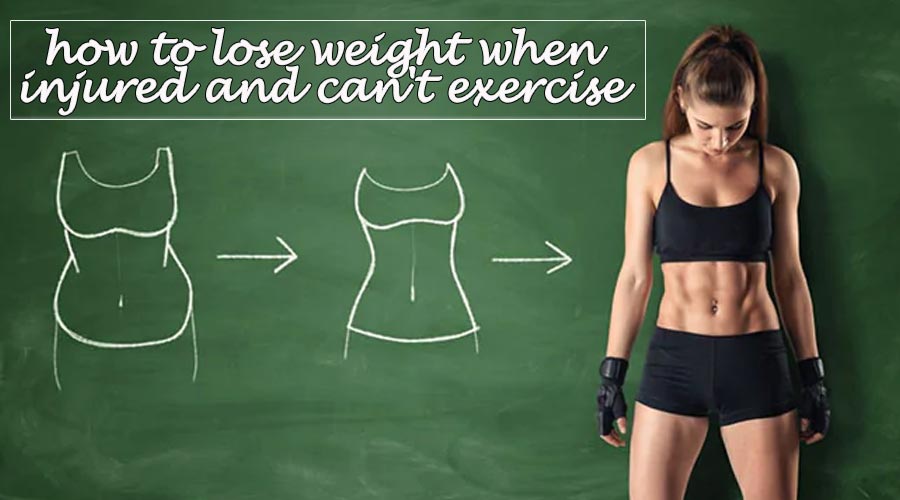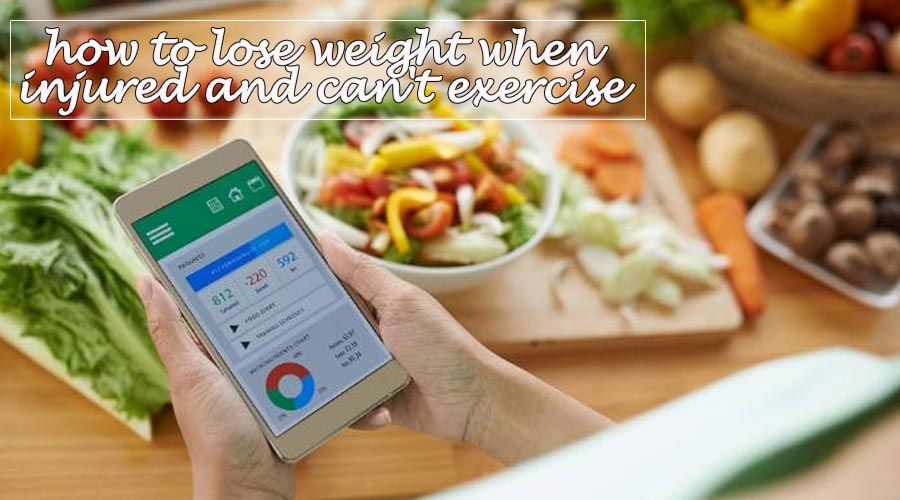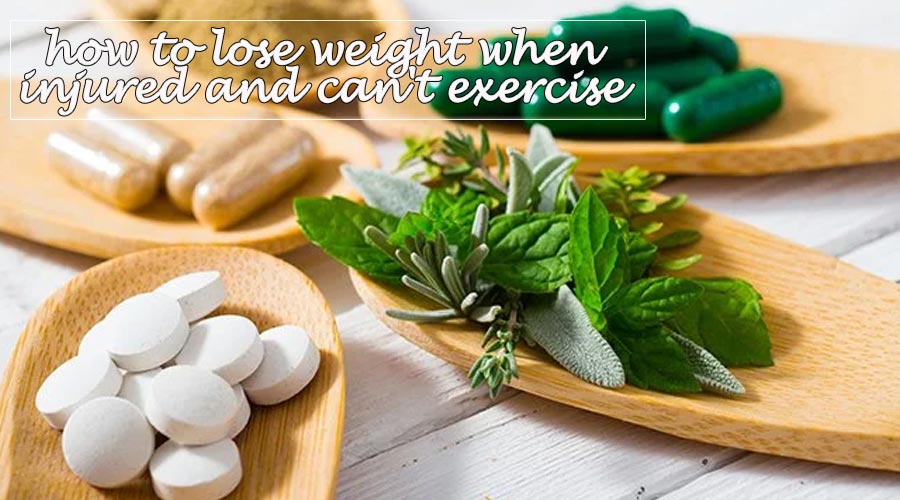
Losing weight with an injury can be a difficult and frustrating experience. People who are dealing with injuries often become limited in their mobility, making it difficult to exercise and stay active to lose the weight they want. However, there are ways to lose weight safely and effectively even when injured; this article will provide tips for successfully losing weight with an injury.
There are many misconceptions about how to lose weight when someone is injured. Some people believe that dieting is the only option or that any physical activity could potentially worsen the injury. The truth is that it’s possible—and important—to safely continue some type of physical activity while healing from an injury, as long as it’s within one’s comfort level and doesn’t cause further harm.
What is Weight Loss?
 Weight loss is often seen as an arduous process, requiring a combination of physical activity and dietary discipline. However, weight loss can be much more than that. In essence, weight loss is a lifestyle change in order to become healthier and fitter; the physical aspects are simply tools used to reach the end goal.
Weight loss is often seen as an arduous process, requiring a combination of physical activity and dietary discipline. However, weight loss can be much more than that. In essence, weight loss is a lifestyle change in order to become healthier and fitter; the physical aspects are simply tools used to reach the end goal.
To start this new lifestyle, it’s important to have an understanding of what sustainable methods work best for you and your body. This means making informed decisions about nutrition and exercise so you don’t get overwhelmed or discouraged quickly by unrealistic expectations from yourself or others around you. It’s also important to remember that there will be setbacks along the way but not to let these prevent you from reaching your ultimate goal.
Losing Weight with Injury
Losing weight with an injury can be a difficult journey, but it is a challenge that is worth taking. While injuries can make it tough to stay active, there are healthier alternatives to losing weight that can still provide results. With the right attitude and guidance, anyone with an injury of any kind can successfully reach their target weight.
The first step in confronting this challenge is to seek medical advice from a doctor or physical therapist and find out what activities you are able to safely do. After determining which activities are best for your injury, the focus needs to shift toward nutrition as diet plays an important role in losing weight even when faced with limited exercise options. It would also be beneficial to create a timeline that allows for realistic results while slowly easing back into exercising on a regular basis once the body has had time to heal properly.
Understanding Body Composition
Losing weight with an injury can be a difficult process, as many people find themselves stuck between wanting to reach their ideal weight and being injured and unable to exercise. Understanding your body composition is essential for those looking to safely lose weight despite their injury, as it allows them to see the amount of fat versus muscle in the body. Knowing how much fat versus muscle one has can help one decide what type of exercise is safe for them and which not only won’t add extra strain but will also help burn fat effectively.
When recovering from an injury, it’s important to understand that an individual’s ability to lose weight is dependent on their current health status and understand the different types of body composition measurements that can be used.
Read more about Fitness Tips for Women
Diet and Nutrition

Losing weight with an injury can be challenging. Depending on the severity of the injury, there may be limited mobility and a need for rest that can make it difficult to stay active. Diet and nutrition can play a key role in aiding this weight loss journey despite the restrictions from an injury.
The first step is to consult with a doctor or dietician about what foods are best for losing weight healthily while allowing adequate healing time for your injury. When putting together your meal plan, focus on whole foods like fruits, vegetables, lean proteins, and healthy fats. Also, look at ways to stay hydrated by drinking more water throughout the day as well as limiting high-calorie beverages like sodas and juices. Additionally, eating smaller meals throughout the day has been shown to help with managing hunger while still meeting nutritional needs.
Rest and Healthy Habits
Losing weight with injury is a difficult challenge, but not impossible. It is possible to still achieve your goal of maintaining a healthy weight if you have sustained an injury. The key is rest and healthy habits.
When dealing with an injury, it is important to get plenty of rest so that your body can heal properly. This means cutting down on physical activity and giving yourself time to recover. Eating a nutritious diet will also help speed up the healing process as well as help you maintain a healthy weight in the meantime. Focus on eating more vegetables, whole grains, lean meats, and low-fat dairy products while avoiding processed foods high in fat and sugar. Also, be sure to drink plenty of water throughout the day to stay hydrated!
Injury-Friendly Exercises
For those who have experienced injury and are trying to lose weight, there are a variety of exercise options that can help them reach their goals without exacerbating the injury. Low-impact activities such as swimming, yoga, or tai chi are great for overall fitness while providing minimal stress on the body. Additionally, strength training using lighter weights and higher repetitions is an effective way to reduce fat while keeping muscles toned without putting too much strain on joints. For cardiovascular benefits, stationary bike riding or light jogging can be beneficial in a low-impact way.
The key to achieving success in losing weight while recovering from an injury is to listen to one’s body and understand its capabilities. Starting out slow with less intense exercises will prevent further damage and allow the body time to adjust and acclimate. This can help prevent re-injury and will ensure that the body is properly healed before returning to a regular exercise routine. With some time and effort, the injured athlete can take advantage of cross-training and get back in the game faster than ever before.
Calorie Reduction Strategies
 Losing weight with an injury can be a difficult challenge, and it is essential to focus on calorie reduction strategies. One of the best ways to reduce calories in such a situation is to create realistic goals that are tailored to your specific needs. For instance, it may be more beneficial to focus on eating smaller portions instead of completely cutting out certain types of food. Additionally, even if you’re unable to exercise due to your injury, focusing on getting enough sleep and reducing stress can have a positive impact on your health and help you reach your weight loss goals.
Losing weight with an injury can be a difficult challenge, and it is essential to focus on calorie reduction strategies. One of the best ways to reduce calories in such a situation is to create realistic goals that are tailored to your specific needs. For instance, it may be more beneficial to focus on eating smaller portions instead of completely cutting out certain types of food. Additionally, even if you’re unable to exercise due to your injury, focusing on getting enough sleep and reducing stress can have a positive impact on your health and help you reach your weight loss goals.
Another important strategy for controlling calorie intake when injured is ensuring that all meals are balanced with protein, carbs, and healthy fats. Eating three meals per day with snacks in between helps keep hunger at bay while making sure that you get all the necessary nutrients. There are plenty of tools available to help you manage food intake, such as tracking apps and calorie-counting websites.
Healthy Substitutes for Exercise
Losing weight with an injury can be a difficult task, but not impossible. With the proper diet and alternative exercises, you can still reach your goals without risking further injury. Healthy substitutes for exercise are key to helping you achieve your desired results. Exercises such as yoga, swimming, and stretching have been known to help people lose weight even when engaging in less strenuous activities than normal.
Yoga is a great way to start as it helps build strength and flexibility without straining any previous injuries. Additionally, it also aids in calming the mind and body so that you remain focused on your goals. Swimming is another excellent substitute that allows the body to move fluidly while simultaneously building muscle and burning fat. It is gentle on joints yet effective enough to work up a sweat, depending on how much effort you put into it.
Supplements and Medications
Losing weight with an injury can be challenging, especially if one is not able to exercise due to the injury. In such cases, supplements and medications can be useful aid in reaching weight loss goals. Not only do certain supplements provide essential vitamins and minerals that may otherwise be missing from an injured person’s diet, but certain medications can help suppress appetite or accelerate metabolism for faster weight loss.
Read more about Sustanon 250 Bodybuilding

There are many different kinds of supplements on the market today that are specifically designed for those trying to lose weight while dealing with an injury. For example, iron supplements can improve energy levels and thus make it easier for someone injured to incorporate physical activities into their lifestyle; omega-3 fatty acids may reduce inflammation caused by injuries; as well as chromium which helps regulate blood sugar levels.
Emotional Support During Recovery
One of the most difficult yet rewarding journeys a person can take is of losing weight with an injury. It can be incredibly stressful to face an injury and have to adjust your lifestyle in order to recover, but it also brings with it great opportunities for personal growth and accomplishment. Despite the challenging circumstances, emotional support during this process can be absolutely crucial in helping you stay on track with your health goals.
When recovering from an injury, staying consistent with healthy habits like eating right and exercising regularly can be difficult due to physical limitations or simply feeling discouraged. This is where finding support comes in; having a friend or family member who understands what you’re going through, motivates you when things seem overwhelming, and holds you accountable are invaluable tools in this journey.
Conclusion: Focus on the Positive
Losing weight with an injury can be a difficult and challenging process. However, it does not have to be something to dread or fear. Through the proper diet and exercise regime, it is possible to achieve your desired weight-loss goals even with an injury. Rather than focusing on the areas you cannot work out due to your injury, focus on eating healthy and exercising the parts of your body that are left unaffected. This will help you still reach your desired goal in spite of any physical limitations you find yourself facing.
The more positive attitude one has when going into weight loss regimens while injured, the more likely they are to succeed in their journey throughout the process. Staying motivated by setting achievable goals each day will help keep the momentum going despite any setbacks you may encounter along the way.
Despite the challenges of losing weight with an injury, it is possible to reach your goals. The journey may be hard and time-consuming but ultimately, focusing on the positive changes you have made will help keep you motivated. The small successes experienced along the way are a testament to the strength of the human spirit and determination that we all possess. By staying committed to your health goals and continually pushing forward despite any setbacks, you can achieve success in reaching a healthier version of yourself. It’s important to remember that every step forward is progress, even if it seems small at first.